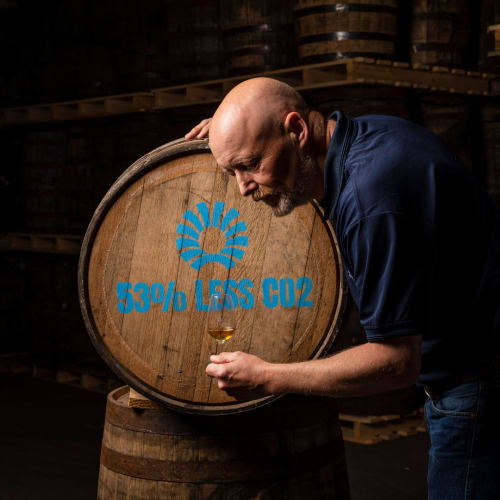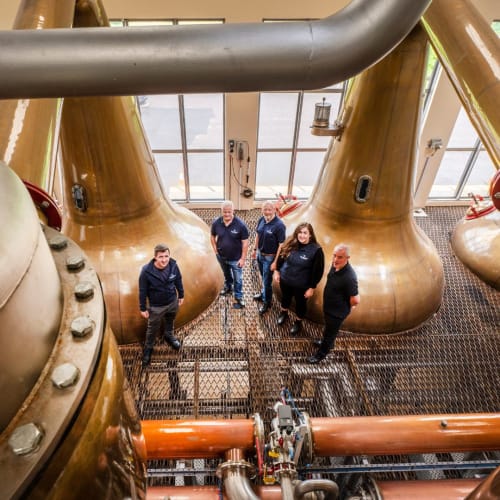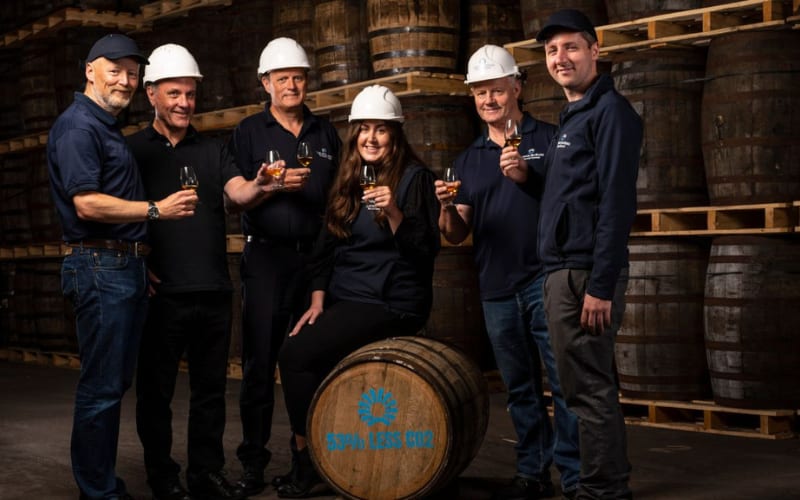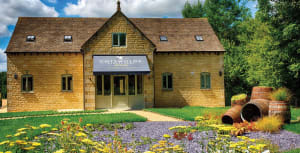Chivas Brothers, a leading name in the whisky industry, has taken a groundbreaking step by sharing the expertise and insights gained from the successful integration of enhanced heat recovery technologies at their Glentauchers site. The move comes after witnessing significant benefits in carbon emissions reduction through the application of these innovative technologies, which capture and recycle heat generated during the distillation process that would otherwise be wasted.

The heat recovery technologies in question include Mechanical Vapour Recompression (MVR) and Thermo Vapour Recompression (TVR). Their implementation at the Glentauchers distillery, situated near Keith in Speyside, Scotland, has resulted in an impressive 48% reduction in total energy consumption. The distillery's total carbon emissions have also seen a remarkable decline of 53% as a result of these advancements. This energy-saving achievement is equivalent to powering 4,979 average UK homes, surpassing the energy consumption of all houses in Keith for an entire year.
The decision to make these technologies 'open source' is a significant leap towards fostering sustainability and innovation within the whisky industry. By sharing these learnings and encouraging their adoption at other suitable distillation sites, Chivas Brothers aims to contribute to a more eco-friendly and energy-efficient future for the entire industry. This groundbreaking initiative sets a commendable example for other distilleries to follow, emphasizing the commitment of Chivas Brothers to environmental stewardship and its role as a visionary leader within the whisky community.

“Heat recovery forms a critical part of our commitments to achieve carbon neutral distillation by 2026. Findings with such significant impact must be shared; this technology has the potential to transform our industry and accelerate its progress to net zero. That’s why we’re making our design process and implementation learnings available to all. As a business with a long history of innovation, we believe this is the right thing to do. Collaboration across our industry will be fundamental if we are to meet collective ambitions around sustainability, safeguarding the long-term future of our product and our planet. Understandably, this technology won’t be right for every distillery, but we encourage our peers to explore whether it has the potential to reduce their own carbon output.” ~ Jean-Etienne Gourgues, Chivas Brothers Chairman & CEO
Chivas Brothers has released a comprehensive case study revealing the various advantages and cost savings they have attained, while also providing intricate insights into the utilized design. Moreover, they are organizing a sequence of open-house events at Glentauchers, inviting distillers to witness the technology in action and understand its seamless integration, aiming to dispel common misconceptions and challenges related to this innovative technology.
The company's most recent results in heat recovery are a continuation of its 2021 pilot study, which demonstrated the potential if applied across distillery operations by achieving energy reductions of 88 percent on a single pot still. The Scottish Industrial Energy Transformation Fund, which supports decarbonization and energy efficiency in Scotland's industry, has provided some funding for the pilot initiative at Glentauchers.
“Chivas Brothers has led the way with an innovative approach, which has halved energy consumption at their Glentauchers distillery. Sharing this breakthrough with the wider industry has the potential to advance efforts to reach net zero across the sector. Recycling heat from malt that would be the equivalent of powering all the homes in Edinburgh and Aberdeen could be a game changer for the industry, and a boost to Scotland’s economic growth while helping reach our climate change goals.” ~ Gillian Martin, Scottish government energy minister
The chance for other distillers to observe the technology in work will be provided by Chivas, which has announced that it would conduct a series of special open house events at its Glentauchers location. Following a third-quarter hiccup, Pernod Ricard stated in April that it was anticipating "very strong" sales in the last quarter of its fiscal year.
About The Net Zero Goal
The whisky industry's goal of achieving net-zero carbon emissions is a significant and ambitious commitment towards sustainability and environmental stewardship. As climate change concerns intensify globally, the whisky industry has recognized its responsibility to reduce its environmental impact and contribute to mitigating climate change.
The concept of net-zero carbon emissions revolves around achieving a balance between the amount of carbon dioxide emitted into the atmosphere and the amount removed or offset. This means that the industry aims to reduce its greenhouse gas emissions as much as possible and then offset the remaining emissions through various initiatives like carbon capture, reforestation, or supporting renewable energy projects.
Many whisky distilleries and producers have pledged to work towards carbon neutrality, setting targets and implementing strategies to achieve this goal. These initiatives may include investing in energy-efficient technologies, using renewable energy sources, optimizing production processes, and reducing waste and water consumption.
In addition to the environmental benefits, striving for net-zero carbon emissions aligns with changing consumer preferences. Today, consumers are increasingly concerned about the sustainability and environmental impact of the products they choose, including alcoholic beverages like whisky. By adopting eco-friendly practices and promoting sustainability, whisky brands can attract environmentally conscious consumers and enhance their brand reputation.
The whisky industry's collective effort towards net zero demonstrates its commitment to a more sustainable future and its recognition of the urgency to address climate change. By collaborating, sharing best practices, and supporting research and innovation, the whisky industry can play a vital role in global efforts to combat climate change and ensure a more sustainable planet for future generations.
About Chivas Brothers
Chivas Brothers is a prominent and esteemed name in the whisky industry, renowned for its rich heritage, dedication to craftsmanship, and a portfolio of iconic whisky brands. Founded in 1801, the company has a history deeply rooted in Scotland, where it has played a significant role in shaping the whisky landscape.
The company's commitment to excellence is evident in its dedication to using only the finest ingredients and traditional production methods. Chivas Brothers is known for its expertise in blending, creating masterful blends that combine different whiskies to achieve exceptional taste profiles and complexity.
One of the company's most notable brands is Chivas Regal, a globally recognized and award-winning blended Scotch whisky. Chivas Regal is celebrated for its smoothness, luxurious flavors, and the artful balance of malt and grain whiskies.
In addition to Chivas Regal, Chivas Brothers boasts a diverse portfolio that includes other well-respected whisky brands such as The Glenlivet, a renowned single malt Scotch whisky, and Royal Salute, known for its prestige and regal association.
The company's dedication to social responsibility extends to community involvement and supporting various charitable initiatives, contributing to the betterment of society.
As part of the Pernod Ricard Group, one of the world's leading spirits companies, Chivas Brothers continues to uphold its legacy of quality, innovation, and timeless whisky craftsmanship. Its whiskies are enjoyed by enthusiasts worldwide, earning Chivas Brothers a reputation as a respected leader in the whisky industry.












